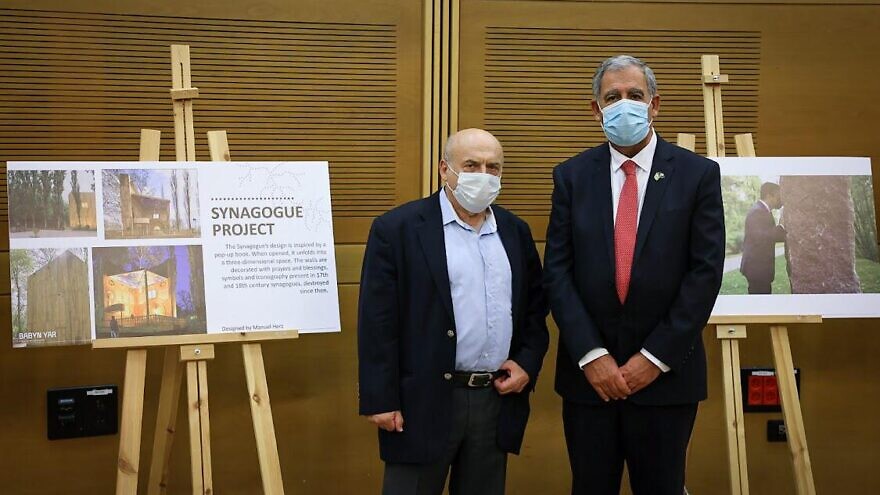The Knesset held a commemoration meeting on Sunday to mark 80 years since the Babi Yar massacre, the symbol of what is known as the “Holocaust of the Bullets,” and which began on the eve of Yom Kippur. In just two days, the Nazis murdered nearly all the Jews in Kiev: 33,771 people. During the German occupation of Ukraine (1941-43), nearly 100,000 victims were murdered and buried at Babi Yar, the overwhelming majority of whom were Jewish, but also included opponents of the regime, the mentally ill and Roma people, making it the largest mass grave in Europe.
The meeting was attended by Speaker of the Knesset Mickey Levy, Minister of Diaspora Affairs Nachman Shai, chairman of the Babyn Yar Holocaust Memorial Center Natan Sharansky, Yad Vashem chairman Dani Dayan, World Zionist Organization and acting Jewish Agency chairman Yaakov Hagoel, and Association of Ukrainian Immigrants in Israel chairman David Levin.
Sharansky called on the Israeli government and Holocaust institutions that had visited the German extermination camps in Poland to visit Babi Yar.
Prior to the meeting, Levy presented a medal on behalf of the Knesset to the last survivor of Babi Yar, Michael Sidko, who was just 6 years old when he witnessed Nazi soldiers murder his infant brother Volodya, his younger sister Clara and his mother, whose screams Michael heard as she was shot to death in the forest of Babi Yar, during the cold-blooded massacre perpetrated there between Sept. 29-30, 1941.
Michael and his brother Grisha miraculously survived after the Nazis selected them instead for either work or medical experiments. The two brothers went on to repeatedly escape death, thanks in part to their Polish neighbor who took them home and passed them off as her own sons until the end of the war. (Watch the testimony here.)
At the moving meeting, Levy said: “I could not help but be moved and to shed a tear listening to Michael’s heartbreaking story, how he saw his dear family taken away from him in front of his own eyes. I salute Michael for his heroism, and I am grateful to him for sharing his story with me, and I was honored to present him with a medal of recognition on behalf of the Knesset, on behalf of Israeli democracy. I reassured Michael that the memory of his family, along with all the victims of Babi Yar and the Holocaust, will be safeguarded forever.
“Michael’s story is intertwined with the story of the State of Israel, which arose from the ashes of the Holocaust, in order to stop the shedding of Jewish blood and to build a home for the Jewish people in the land of their ancestors,” he continued. “We must maintain the security, and the economic and social strength of the State of Israel, which together are the best guarantees for the future of our country, and for our ability to stand by the vow we made to Michael and all the victims of the Holocaust: Never again.”
Sharansky promised Michael that the names of his mother and siblings, who were murdered at Babi Yar, would be recalled at the official ceremony to mark the 80th anniversary of the massacre, due to take place in Kiev on Oct. 6.
Diaspora Affairs Minister Nachman Shai said that “preserving the memory of the Holocaust is a national mission of the State of Israel. We must do everything we can to ensure that the memory of the Holocaust is not forgotten.”
“My position on the educational trips to Poland is that I am against stopping the visits,” he added. “We need to be there and see with our own eyes—us and our young people. Babi Yar should be one of the places where you should definitely visit, learn and remember.”
Yad Vashem chairman Dani Dayan said at the Knesset meeting, “It is our Jewish, human and moral duty to remember the murdered in that inconceivable massacre and not allow their memory to be forgotten. The faces of the men, women, girls and boys destroyed in that valley of murder must never be allowed to disappear, especially not when it comes to the place and the events which some wanted to be erased from the pages of history. We will not permit this memory to ebb away, not only for the sake of those killed but also for our own sake today and for future generations.”


























